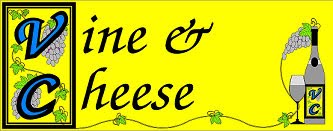"Consolidation" is a huge movement in both the wine and cheese industries. When the industry giants come calling on the little guys with dollars in hand, the prevailing wisdom is to take the money and get out. It's not rocket science, as they say. Just trying to compete with the big guys is like beating your head against the wall anyway so take the money and go.
For those who choose to stay in the game, part of the reasoning has to be altruistic; artisan production is frankly superior to the mass production of the conglomerates. If a small independent producer can keep the doors open he will inevitably provide a better product for discriminating American consumers, even if that row is a little tough to hoe at times.
This trend toward consolidation seems to be the case everywhere except in Champagne, France where the movement is in the opposite direction. Champagne is a wine production region dominated by large negotiant companies (Maisons) that mass market brands that offer up a "house style" of sparkling wine. Easily ninety percent of the production of Champagne is made by the behemoths who can source their juice from close to two thousand different vineyards. Even the vaunted Dom Perignon falls into this category. Now the peasants with pitchforks are coming after the aristocracy as growers are now making and bottling their own sparkling wines.
Perhaps I overstate the case with the pitchforks imagery. Anyway, for the past twenty years an increasing number of grape growers now make and market their own estate Champagnes. They number about five thousand growers who produce 3,700 brands, which while seeming like a lot, actually amounts to about three percent of the total production of Champagne. Less than ten percent of that production comes to America.
So, are these Champagnes better than the giants? Yes, in most cases. By definition, estate wines are subject to the weather every year so there are better vintages and lesser vintages. Most traditional Champagnes are made by skillfully blending vintages resulting in an average quality that is remarkably good. So why would a grower choose to make his own wine? Because, of course, he knows he has superior fruit so why cheapen what he has by blending lesser juice into it. As a matter of fact, the entire grower movement is a reaction to under-flavored, non-distinct mass market Champagne.
Saturday, May 7, 2016
Subscribe to:
Post Comments (Atom)




No comments:
Post a Comment